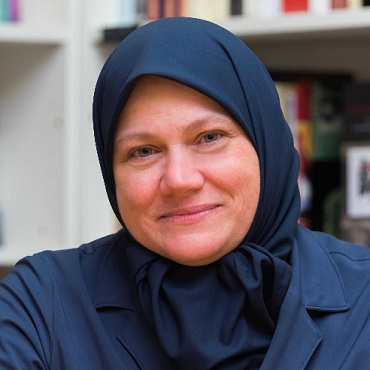
Courage & Commitment: The Femininity of Muslim Women
For more on this topic, see Gender and Islam
Introduction
The global June Cleaver
Women in the Qur’an
The single mother
Married
No evidence of a husband
Seeking an affair
Divorcée
And more...
Qur’anic definitions of femininity
Historical roles
The case of Aisha رضي الله عنها
Early spiritual and religious leaders
Inheritance of Aisha
Communities of women
Femininity redefined
Notes
[1] Coontz, S. (1992). The way we never were: American families and the nostalgia trap. USA: Basic Books of Harper and Collins., p. 26. Coontz attributes this view to several sociologists including Talcott Parsons (1902-1979). See Coontz, p. 296, note 9. Coontz cites Talcott Parsons and Robert Bales, Family, Socialization, and Interaction Process (Glencoe: Free Press, 1955).
[2] Ibid.
[3] Ibid., p. 151.
[4] Qur’an 3:37.
[5] Qur’an 79:24.
[6] Qur’an 27:42.
[7] Qur’an 12:53.
[8] Qur’an 33:37.
[9] Qur’an 3:35
[10] Qur’an 19:21.
[11] Qur’an 28:9.
[12] Qur’an 33:6.
[13] A classic study is Erich Neumann’s Die große Mutter. Der Archetyp des grossen Weiblichen. The work was published in English translation as The great mother: An analysis of the archetype in 1955 and recently re-printed in 2015. See Erich Neumann, The Great Mother (Princeton: Princeton University Press, 2015).
[14] For more on ‘Amra, see Asma Sayeed, Women and the Transmission of Religious Knowledge in Islam (Cambridge: Cambridge University Press, 2013), 67-69.
[15] Bewley, A. (2004). Muslim women: A biographical dictionary London: Ta-Ha Publishers.
[16] Ibid.
[17] Nadwi, M. A. (2007.) Al-Muhaddithāt: The women scholars in Islam. Oxford: Interface Publications.
[18] Ibid.
[19] Kazan, H. (2010). Female calligraphers: Past and present. Istanbul: Cultural Co.
[20] Boyd, J. (1989). The Caliph’s sister: Nana Asma’u 1793-1865 teacher, poet, and Islamic leader. London: Frank Cass Publishers.
[21] Fathi, H. (1997). Otines: The unknown women clerics of Central Asian Islam. Central Asian Survey, 16(1), 27-43. doi: 10.1080/02634939708400967
[22] Ibid.
[23] Aryanti, T. (2013) A claim to space: Debating female religious leadership in a Muhammadiyah mosque in Indonesia. The Muslim World, 103(3). 375-388.
[24] Jaschok, M. & Jingjun, S. (2015). The history of women’s mosques in Chinese Islam: A mosque of their own. Oxford, UK: Routledge Press.
[25] Ibid.
[26] Jaschok, M. (2012). Sources of authority: Female ahong and Qingzhen Nüsi (women’s mosques) in China. In M. Bano & H. Kalmbach (Eds.),Women, leadership and mosques: Changes in contemporary Islamic authority. Leiden: Brill, 37-58.
[27] Alwani, Z. (2012). Muslim women and global challenges: Seeking change through a Quranic textual approach and the prophetic model. New Delhi: Institute of Objective Studies, p. 4.
[28] Qur’an 9:71.
